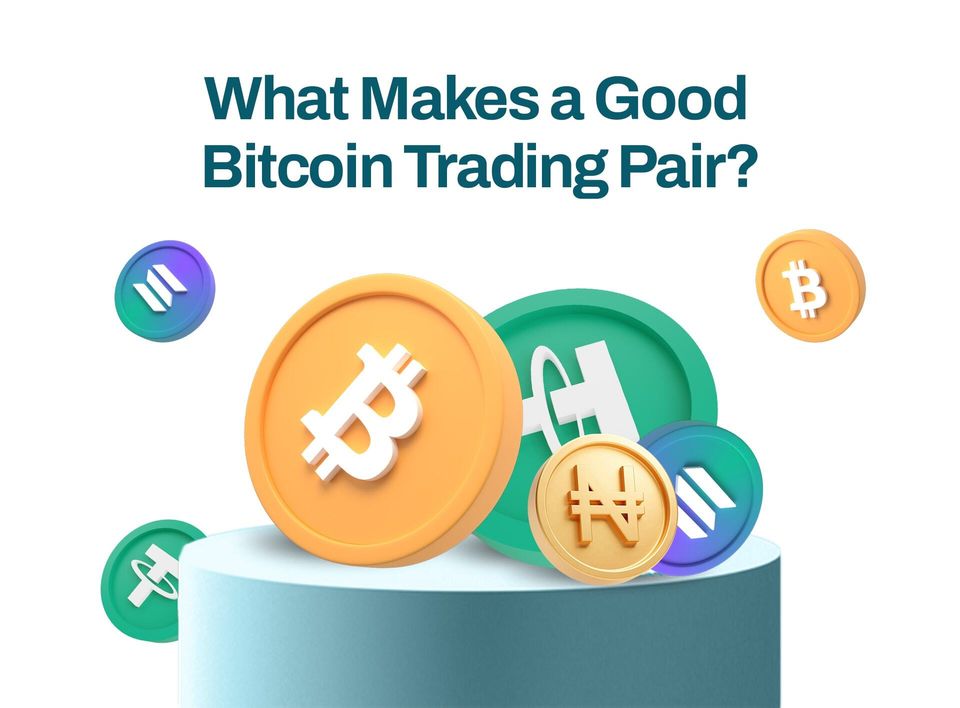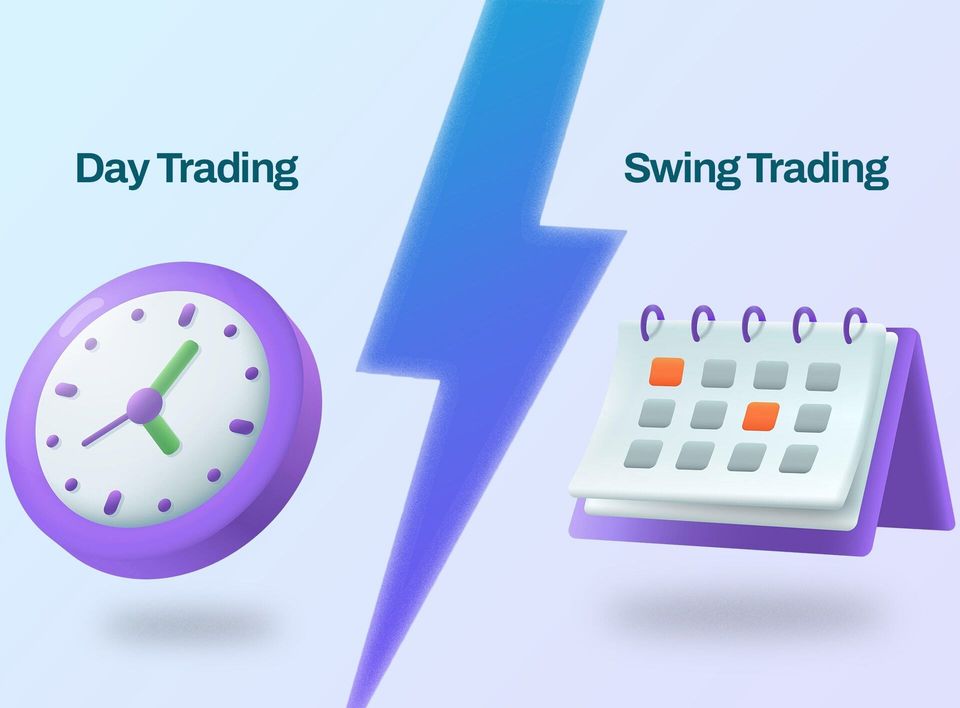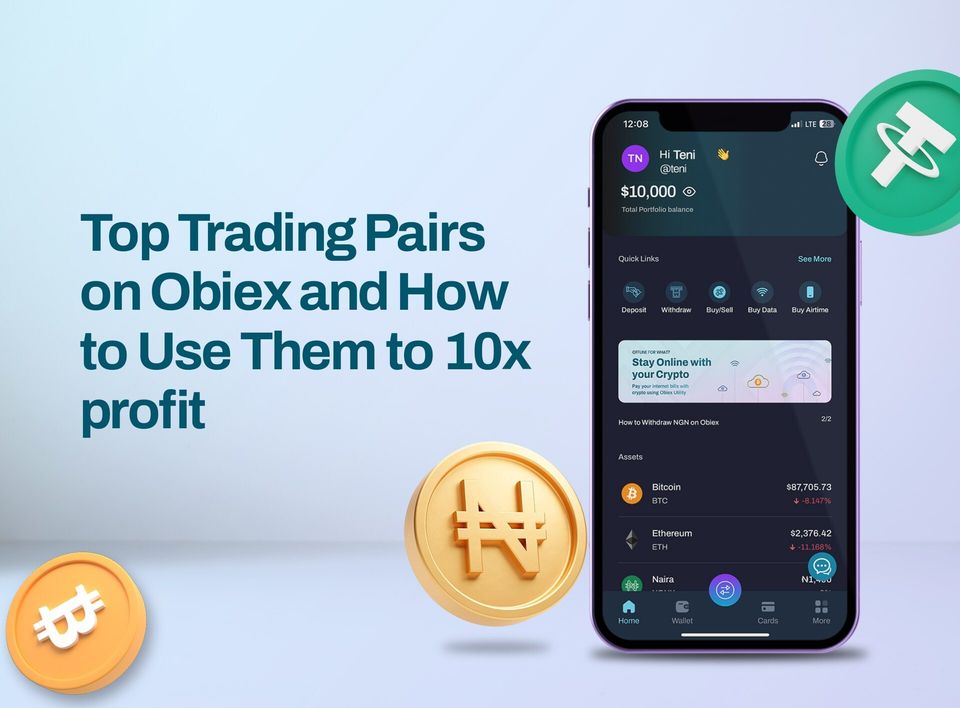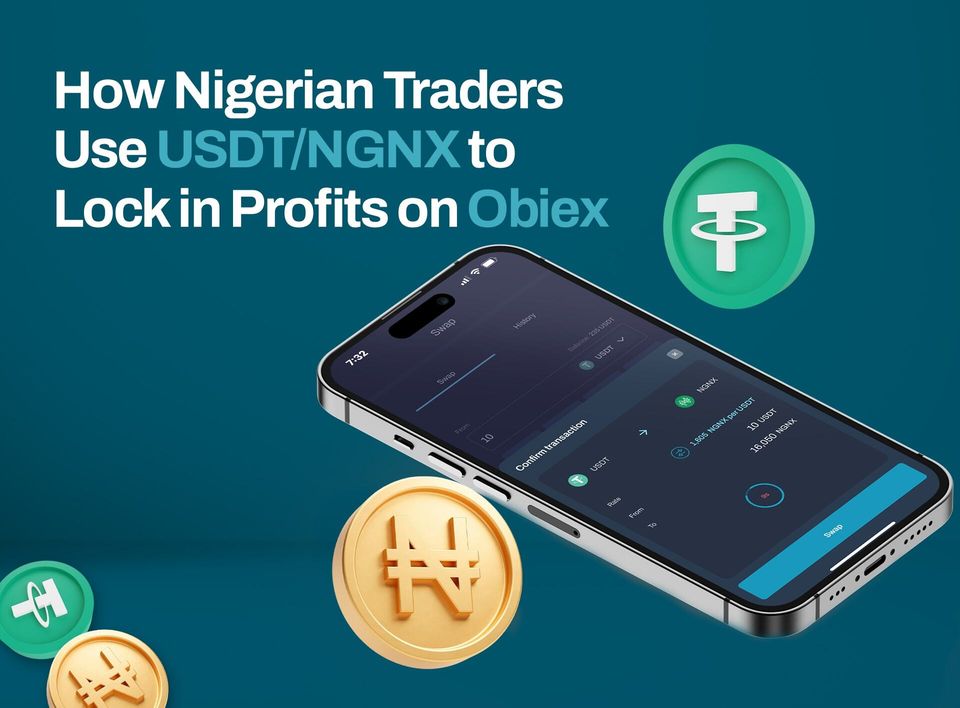What is P2P Trading: A Simple Guide for Crypto Traders and Users
Peer-to-peer (P2P) trading is a way of buying and selling cryptocurrencies where traders buy and sell directly with each other.
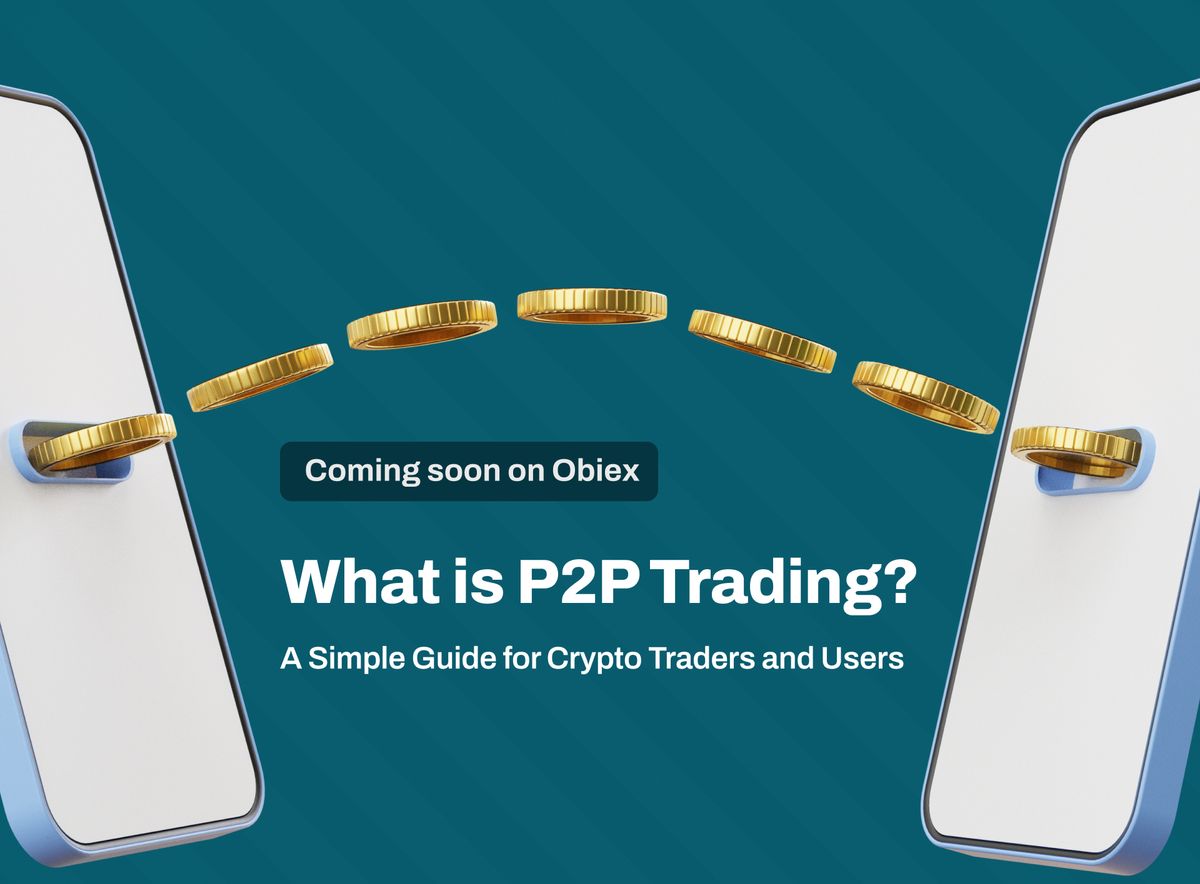
Table of Contents:
- What is P2P Trading?
- How Does P2P Trading Work?
- Why Should You Use P2P Trading?
- Types of P2P Networks
- P2P Trading on Obiex
- P2P Trading Strategies
- Challenges of P2P Trading
- To Recap
What is P2P Trading?
Peer-to-peer (P2P) trading is a way of buying and selling cryptocurrencies where traders buy and sell directly with each other on a cryptocurrency exchange app or website.
The cryptocurrency exchange provides an online platform to connect buyers to sellers and sellers to buyers. The exchange also acts as a regulator between both parties to ensure safe trading.
To further explain, think of the cryptocurrency exchange platform as a marketplace where a buyer and seller come together to trade with each other.
As it happens in the market, a seller can set their own prices, and the buyer can choose to buy from them or move to another seller with preferable prices.
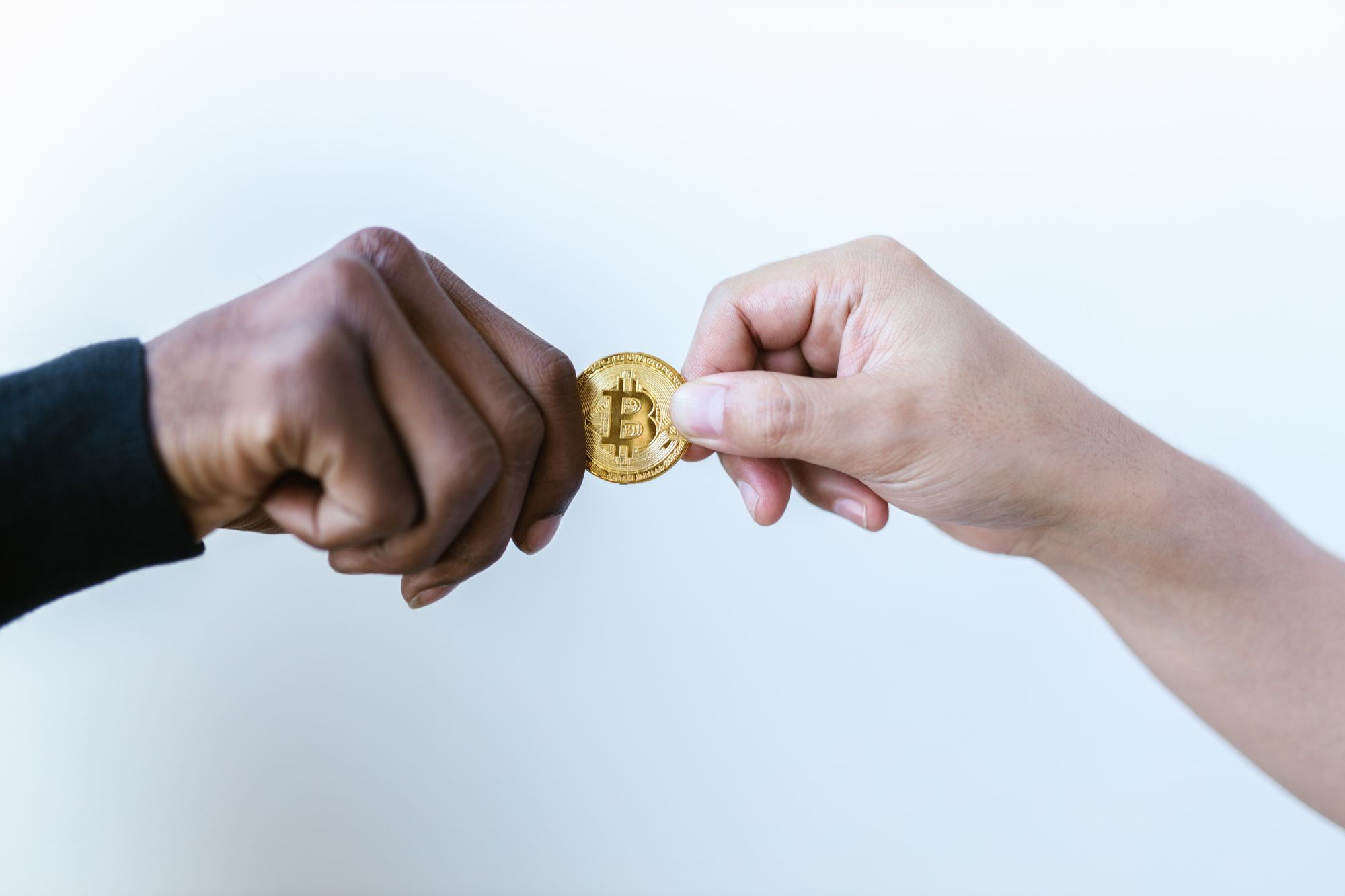
How Does P2P Trading Work?
As mentioned earlier, the cryptocurrency exchange acts as an online platform or marketplace to connect buyers and sellers. When a buyer and seller agree to a trade, the platform opens an escrow to hold the crypto about to be sold.
Escrow in crypto is a smart contract that holds the assets until both the buyer and seller agree that the conditions of the trade have been correctly met.
To explain further, a smart contract is a computer program that automatically completes a trade when certain conditions are met. A computer program is a set of instructions that tells a computer what to do in a language that it understands.
Imagine that you want to buy Bitcoin from a seller. Instead of signing a paper contract and relying on a third party to ensure the seller gives you the Bitcoin when you pay for it, you use a smart contract.
The smart contract contains the terms of the agreement, such as the price and the date of payment.
Once you and the seller agree to the terms, the smart contract is sent to the blockchain, where it is publicly visible and cannot be changed.
When you send the money for the Bitcoin, and the buyer confirms that they have received it in their wallet or account, the smart contract automatically sends the Bitcoin to your wallet.
Using Escrow for P2P trading helps ensure that everyone involved in the transaction keeps their promises and reduces the risk of fraud or non-delivery.
To illustrate how P2P trading works in practice, let's take the example of Peter, a trader who wants to exchange USDT (Tether) for ETH (Ether).
Here is how the exchange would work:
- Peter creates an account on a cryptocurrency exchange app or website that offers P2P trading like Obiex.
- Peter logs in to the app or website and searches for traders offering to exchange ETH for USDT.
- Peter finds a trader, Martha, offering to exchange 3 ETH for 5000 USDT.
- Peter sends a trade request to Martha to make the exchange.
- The app/website creates an escrow to hold Martha's ETH until she confirms Peter has paid the USDT into her wallet.
- Once Martha confirms the correct amount of USDT has been paid to her wallet, the app/website pays the 3 ETH into Peter's wallet.
- The trade is now complete.
P2P trading can work for any cryptocurrency pair and also work for fiat/crypto pairs. For instance, you can trade Naira (NGNX) for Bitcoin (BTC) or Bitcoin (BTC) for Naira (NGNX). The process works the same as we explained above using the two traders, Peter and Martha.

Why Should You Use P2P Trading?
P2P trading offers the following advantages:
- Wide Range of Trade Offers:
As a buyer, you can access many sellers with different exchange rates and payment methods. As a seller, you gain access to more buyers and trading deals. It's like going to an online marketplace to shop for the best trading deals.
2. Global Trading:
P2P exchange services allow you to trade crypto with people in different parts of the world in a few minutes. A buyer in Nigeria can strike a deal with a seller in Kenya, and in less than 5 minutes, a deal has been successfully completed.
3. Multiple Payment Options:
Multiple payment options are always a benefit in the marketplace. With P2P trading, buyers can make payments through different wallets, bank accounts or even in person. It also encourages traders to make more trades without worrying about how to pay or if their available means of payment would be accepted.
4. Secure Transactions Through Escrow:
As stated before, P2P crypto exchanges use escrow services to protect buyers and sellers from fraudulent transactions. Escrow ensures that the assets held by the seller will only be given to the buyer when both persons successfully meet the transaction terms.
Types of P2P Networks
Peer-to-peer (P2P) networks come in various forms and unique ways to help users connect and share data without a central authority. Here are the main types:
1. Unstructured P2P Networks:
In this type, nodes (computers) connect randomly. There is no organisation or central server, making it easy to join. However, this also means it can be less efficient, as finding specific data requires searching through many nodes. Popular file-sharing systems like Gnutella use this model.
2. Structured P2P Networks:
These networks organise nodes in a specific structure, making it easier to find files or resources. Data is stored in a distributed fashion, and algorithms help users locate the information they need quickly. An example is the Distributed Hash Table (DHT) used in some cryptocurrency platforms.
3. Hybrid P2P Networks:
This combines elements of centralised and P2P networks. A central server is used to help locate peers, but once connected, data sharing is direct between users. This makes it faster and more reliable. Skype, for instance, originally used a hybrid P2P system for its communication services.
P2P Trading on Obiex
At Obiex, we understand crypto traders need various choices for trading coins and tokens. That is why we built a P2P marketplace where buyers and sellers can come together to trade safely and securely.
With Obiex P2P, you can access various crypto prices from different sellers. We've also made our P2P marketplace secure for buyers and sellers to eliminate fraud and scams.
P2P Trading Strategies
1. Arbitrage Trading:
Arbitrage trading is when a trader buys a cryptocurrency at a lower price in one market and sells it at a higher price in another. For example, you might find that Bitcoin is selling for a lower price on one P2P platform but is priced higher on another platform. This price difference is your opportunity to make a profit. However, this strategy requires quick action, as prices can change rapidly.
2. HODLing:
HODLing (Hold On for Dear Life) is a strategy where traders buy and hold a cryptocurrency for a long period, waiting for its value to increase over time. This method works best if you're confident that the price of a particular coin, like Bitcoin or Ethereum, will rise in the future. Many long-term investors use this strategy because it requires patience but can result in significant gains when prices go up.
3. Dollar-Cost Averaging (DCA):
With Dollar-Cost Averaging, you invest a fixed amount of money in cryptocurrency at regular intervals, regardless of the current price. For instance, you could buy $100 worth of Bitcoin every month, whether the price is high or low. This strategy helps reduce the risk of buying all at once when the price is too high and allows you to take advantage of price dips over time.
4. Market Timing:
Market timing involves trying to predict when cryptocurrency prices will rise or fall so that you can buy low and sell high. For example, if you believe the price of Bitcoin will drop after a major news event, you might wait to buy at a lower price. However, market timing is risky, as it’s difficult to accurately predict price movements.
5. Scalping:
Scalping is a short-term trading strategy where traders make multiple small trades to take advantage of minor price fluctuations. In P2P trading, scalpers may buy and sell a coin several times a day to profit from small changes in price. While each trade may bring a small profit, these gains can add up over time. Scalping requires constant monitoring of the market and quick decision-making.
Challenges of P2P Trading
1. Risk of Scams:
Since P2P trading involves direct transactions between two parties, there’s a higher chance of encountering fraud. Scammers might pretend to be buyers or sellers, only to vanish after receiving the funds or the cryptocurrency.
2. Slow Transaction Times:
P2P trades rely on both parties to complete the transaction steps manually. If one party delays, it can lead to longer wait times compared to instant trades on centralised exchanges. This can be frustrating, especially for users in urgent need of completing their transactions.
3. Price Volatility:
Because P2P trades take longer to settle, buyers or sellers might lose out on favourable prices during the transaction process, making it harder to lock in good rates.
4. Lack of Buyer/Seller Trust:
Since you are dealing with individuals directly, it’s hard to know whether the other party is trustworthy. Even on platforms with user ratings, there's always the risk of dealing with a dishonest person, which can make new users nervous about starting P2P trading.
5. Limited Payment Options:
Some P2P platforms offer fewer payment methods than centralised exchanges. For example, a seller may only accept specific bank transfers, making it difficult for users without access to that payment method to complete trades.
To Recap
- Peer-to-peer (P2P) trading is a way of buying and selling cryptocurrencies where traders buy and sell directly with each other on a cryptocurrency exchange app or website.
- Just like any other form of trade, P2P trading has its risks and challenges. Always carry out due diligence before becoming a P2P trader on any platform.
- When a buyer and seller agree to a trade on a P2P platform, the platform opens an escrow to hold the crypto about to be sold.
- You can access various crypto prices from different sellers on the Obiex P2P marketplace with guaranteed security.
Disclaimer: This article was written to provide guidance and understanding. It is not an exhaustive article and should not be taken as financial advice. Obiex will not be held liable for your investment decisions.

